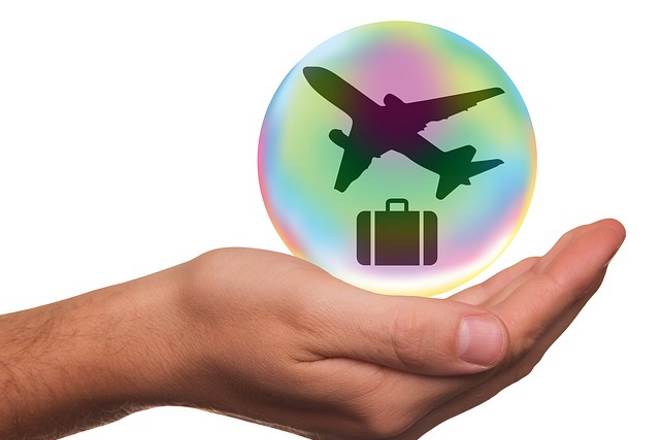Protecting Your Trip: Ticket Options, Insurance, and Refund Rights
Trips can be disrupted by many factors: flight delays, cancellations, overbooking or lost baggage. Understanding ticket types, refund policies and what insurance covers helps you make informed choices before you travel. This short overview highlights the practical choices travelers can use to reduce stress and financial risk when plans change.

Travel inevitably involves uncertainty, and protecting your trip starts with knowing how tickets, insurance, and refund rights interact. Preparing in advance—through careful ticket selection, a review of refund and rebooking terms, and suitable insurance—reduces the impact of delays, cancellations, or baggage issues. This article breaks down what to check before you buy, which apps and checklists can help, and real-world cost considerations so you can travel with clearer expectations.
Delays and cancellations: what to expect
Delays and cancellations occur for many reasons: weather, crew availability, air traffic control, or mechanical problems. When a scheduled service is disrupted, read the carrier or operator’s contract of carriage and local passenger rights rules to see whether they must offer rebooking, meals, accommodation, or refunds. Keep documentation—boarding passes, notifications, and receipts—to support claims for reimbursement. Use apps that provide real-time alerts and alternate routing options, and verify whether vouchers are refundable or transferable before accepting them.
Rebooking and refunds explained
Rebooking policies vary by fare type and provider. Flexible or refundable fares usually allow free changes and refunds, while most basic economy fares restrict rebooking or charge fees. If a cancellation is initiated by the carrier, many jurisdictions require offering a refund or comparable rebooking without penalty. When seeking a refund, file promptly with the carrier and with the payment provider if necessary. Record communications, note reference numbers, and escalate to consumer protection bodies if response times are excessive.
Baggage, transfers, and accessibility
Baggage rules, transfer procedures, and accessibility services differ across airlines, rail operators, and bus companies. Check included baggage allowances in your fare: some low-cost fares exclude checked bags or charge for oversized items. For transfers, allow sufficient connection time and confirm whether carriers transfer baggage automatically. Travelers requiring assistance should request accessibility services in advance and carry documentation if needed. Keep an itemized baggage checklist and photograph valuables before departing to speed claims for loss or damage.
Insurance and fare types for protection
Travel insurance can cover trip cancellation, interruption, medical emergencies, and baggage loss, but policies vary widely. Compare single-trip and annual plans, and watch exclusions such as pandemics, pre-existing conditions, or certain activities. Some credit cards provide limited trip protections if you pay with the card; check coverage limits and claim procedures. When choosing a fare, weigh the premium for refundable or flexible tickets against the likely cost of purchasing insurance — sometimes a higher fare simplifies claims, other times insurance is more economical.
Routing, apps, checklists, and visas
Careful routing reduces risk: avoid overly tight connections, and consider alternate airports when routing options are limited. Use travel apps for itinerary management, alerts, and routing suggestions, and keep a digital and printed checklist for documents like visas, passports, and vaccination records. Confirm visa processing times well before booking and track embassy guidance for entry requirements. Maintain copies of confirmations, and sync itineraries to apps that aggregate flight, transfer, and accommodation changes.
Overbooking, sustainability, and cost considerations
Overbooking remains a common airline practice; be aware of your rights to compensation or re-accommodation if denied boarding involuntarily. Sustainability choices—like choosing lower-emission routing or consolidated transfers—may affect fares or flexibility. Below is a short comparison of typical services and indicative costs to give a practical sense of expenses when planning protection strategies.
| Product/Service | Provider | Cost Estimation |
|---|---|---|
| Short-haul basic economy fare (one-way) | Ryanair / EasyJet / comparable low-cost carriers | $20–$150 depending on season and route |
| Domestic standard economy fare (one-way) | Delta / United / American Airlines | $100–$400 depending on distance and demand |
| Trip cancellation insurance (single-trip) | Allianz Travel / Axa / Generali | $20–$100, varies by trip value and coverage level |
| Checked baggage fee (standard) | United / Ryanair / most carriers | $25–$80 per bag, depending on carrier and route |
Prices, rates, or cost estimates mentioned in this article are based on the latest available information but may change over time. Independent research is advised before making financial decisions.
Conclusion Balancing ticket flexibility, appropriate insurance, and clear understanding of refund and rebooking rules is the most practical way to protect your trip. Keep records, use apps and checklists to stay organized, and compare the real cost of flexible fares versus insurance. Anticipating delays, baggage issues, and transfer complications makes it easier to choose options that match your tolerance for risk and your travel budget.





